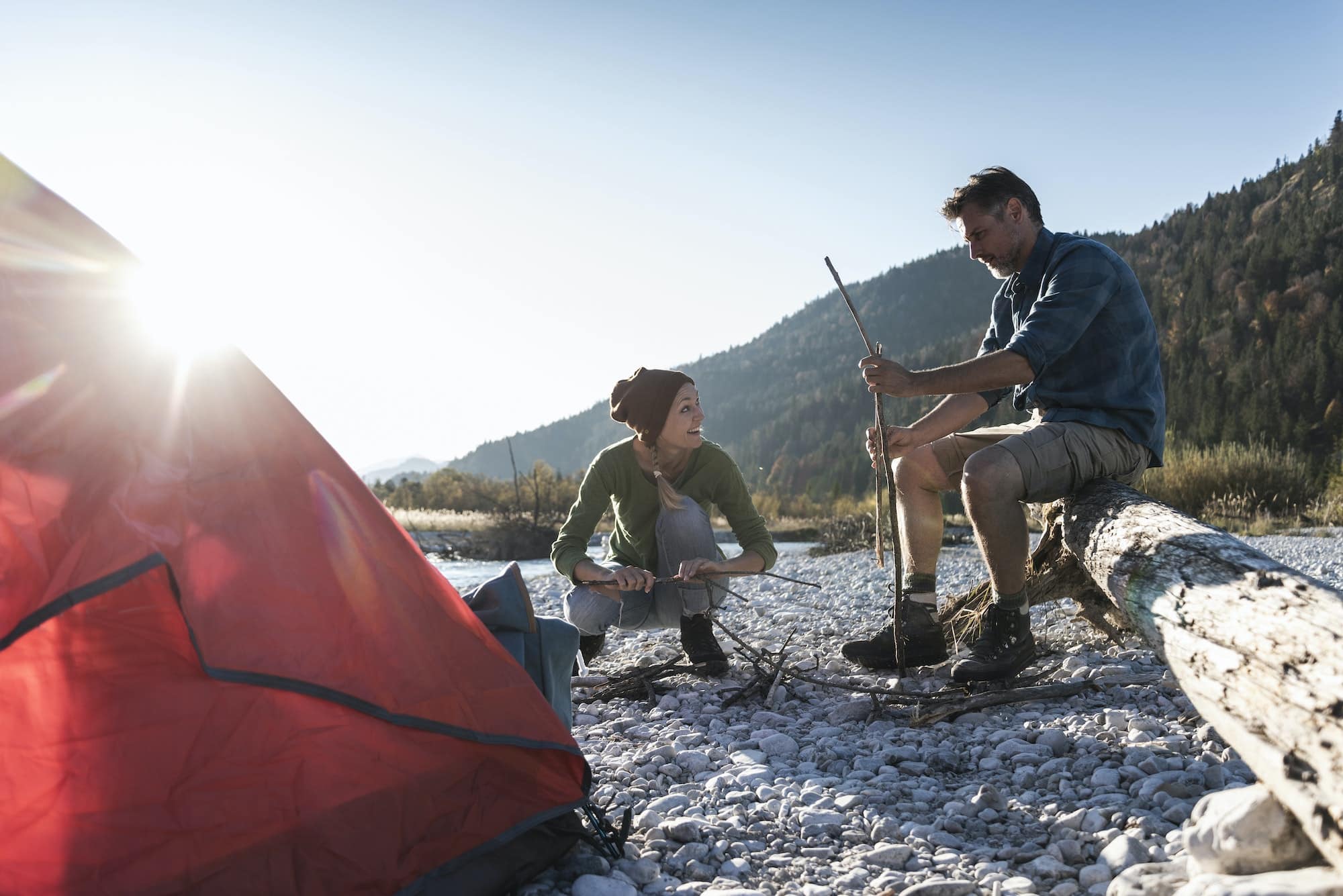How can you make your camping trip in UK coastal areas educational for children?

Camping trips provide a myriad of opportunities for children to learn, explore, and grow. Combining the fun of outdoor activities with the richness of nature's classroom, these expeditions are a great way for your family to bond and for your kids to gain invaluable knowledge. In the UK, coastal areas offer a unique backdrop for such adventures. From the towering cliffs of Cornwall to the sandy beaches of Norfolk, the country's coastline is loaded with educational opportunities. Let's dive into how you can turn your coastal camping trip into a memorable learning experience for your children.
Learning Through Play
Children learn best when they're engaging in play. This notion isn't just some hocus-pocus dreamt up by child psychologists; it's backed by decades of research. When children play, they are more open to learning, more engaged, and more likely to retain information.
A lire également : How to pack and prepare for a camping trip during the UK's unpredictable shoulder seasons?
During your camping trip, you can create opportunities for play that also serve as learning experiences. Consider setting up a treasure hunt with clues related to the local flora and fauna. Kids will have a blast searching high and low, all while learning about the natural world around them.
Another great game is "nature bingo." Before heading out on a hike, give each child a bingo card filled with things they might find along the way – a type of bird, a specific plant, a certain rock. The first child to find all the items and yell "Bingo!" wins.
Avez-vous vu cela : What are the best ways to use a windbreaker effectively at exposed coastal campsites?
Exploring the Marine World
The unique ecosystems of the UK coastal areas offer a marine learning experience like no other. A trip to the beach isn't just about sandcastles and sunbathing; it's a chance to dive into marine biology, teaching your children about the diverse life forms that inhabit our oceans.
A simple activity is to explore the rock pools that are commonly found in UK coastal areas. These are teeming with life, from crabs scurrying under rocks to sea anemones clinging to the sides. Each rock pool is a miniature ecosystem, providing an excellent opportunity for kids to learn about habitats and the food chain.
For a more hands-on experience, you could organise a mini "beach clean-up" activity. Not only will this promote environmental consciousness among your children, but it will also give them a chance to learn about the types of waste that end up in our oceans and the impact they have on marine life.
The Magic of Geography
Apart from biology, camping trips to the coast can help children learn about geography. The UK's coastline is a patchwork of different geological features, from high cliffs and sprawling beaches to dramatic sand dunes and rugged headlands. Each of these features tells a story, providing a window into the country's geographical history.
Your family could make a "beach profile," a cross-sectional diagram of the beach from the waves to the inland area. This activity will help children understand concepts such as erosion and longshore drift. Alternatively, they could create a "sand journal," collecting samples from different parts of the beach to understand how sand varies.
Survival Skills: A Lesson in Self-Reliance
Camping isn't just about having fun; it's also about survival. Learning to pitch a tent, start a fire, or navigate using a compass are all valuable skills that can serve children well in their lives. These activities not only teach kids about survival but also about self-reliance and problem-solving.
In the context of a coastal camping trip, you could take this one step further by teaching your children about tidal safety. Understanding the tides and their potential dangers is an important part of being safe on the beach. This could also be an excellent opportunity to introduce your children to basic first aid, such as how to treat a jellyfish sting or what to do if someone gets caught in a rip current.
The Great Outdoors as a Classroom
One of the best aspects of camping is the opportunity to bring learning to life. Instead of learning about nature from a textbook, children can experience it firsthand. This kind of immersive learning is not only more engaging but also more effective.
With some creativity and planning, your next family camping trip can be more than just a fun getaway. It can be a journey of discovery and learning, a chance for your children to grow and learn in the great outdoors. From the thrill of exploring rock pools to the satisfaction of pitching their tent, every moment is an opportunity for learning and growth. So, pack your bags, pitch your tent, and get ready for a memorable camping trip that will educate and entertain your children in equal measure. An unforgettable adventure awaits!
Integrating Technology with Outdoor Education
Educational camping trips are not limited to tangible experiences but also extend to the exciting world of technology. Guided by the belief that technology can enhance outdoor education, you can incorporate tech tools to make your children's learning experience at the UK coastal areas even more enriching.
For instance, mobile applications can become handy learning resources during your camping trip. Apps like iNaturalist or PlantSnap can help children identify different species of plants and animals. This not only makes nature exploration more interactive but also encourages kids to engage more deeply with the environment around them.
Use smartphones or tablets to document your camping trip. Encourage your children to take photos of the things they find interesting or curious about. This can help them remember their experiences more vividly and provide material for further learning when you return home.
Integrating technology with outdoor education also opens a window to the world of digital mapping. Apps like Google Earth can aid kids in understanding geographical features better. They can compare the physical features they observe with the ones shown in the app, enhancing their spatial thinking skills.
Lastly, technology can also be a safety tool during your camping trip. Teach your kids how to use GPS for navigation or how to send SOS signals in case of emergencies. This not only promotes safety consciousness but also imparts practical skills that can prove useful in the future.
Wrapping up the Adventure: Learning Beyond the Camping Trip
As your family camping trip draws to a close, it's essential to remember that the learning doesn't have to stop. Each camping trip is a chapter in your child's journey of lifelong learning.
Once home, encourage your young people to share their experiences with others. They could do a show-and-tell session with their friends, recounting the adventure they had and the lessons they learned. This not only reinforces their learning but also cultivates their communication skills.
You may also want to encourage your children to create a scrapbook or journal of their trip. They could include photographs they took, drawings of the things they saw, or written accounts of their daily activities. This project could serve as a reminder of the fun they had and the knowledge they gained.
Look for books or documentaries that touch on the topics your children learned about during the camping trip. From marine life to geographical formations, there are numerous resources available that can deepen your child's understanding.
Lastly, always remember to view your camping trips as more than just vacations. These are opportunities for hands-on learning, for adventure, and for creating lifelong memories. With a bit of planning and creativity, you can make sure that every camping trip is an educational experience that your children will cherish.
To conclude, camping in the UK coastal areas is an excellent opportunity for children to learn outside the confines of their classrooms. From learning about marine life and geography to using technology for enhancing outdoor education, every moment offers a chance for growth and learning. So, pack up your sleeping bags, set up your tent, and let the adventure begin! Your kids will definitely look forward to the next school trip to the great outdoors.
